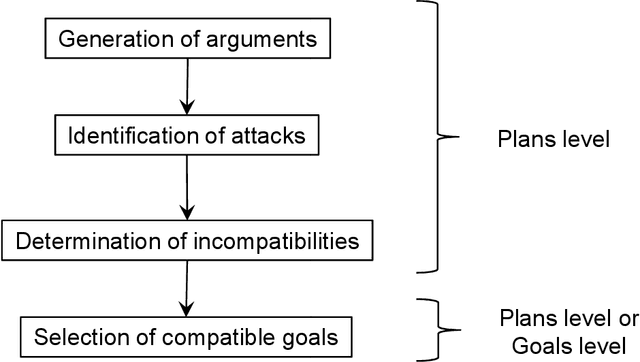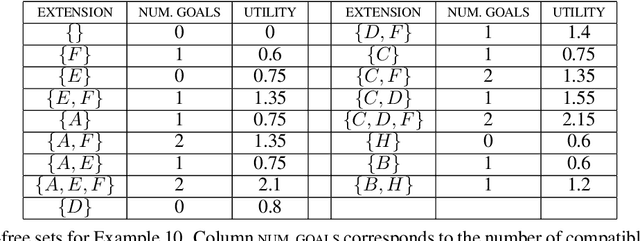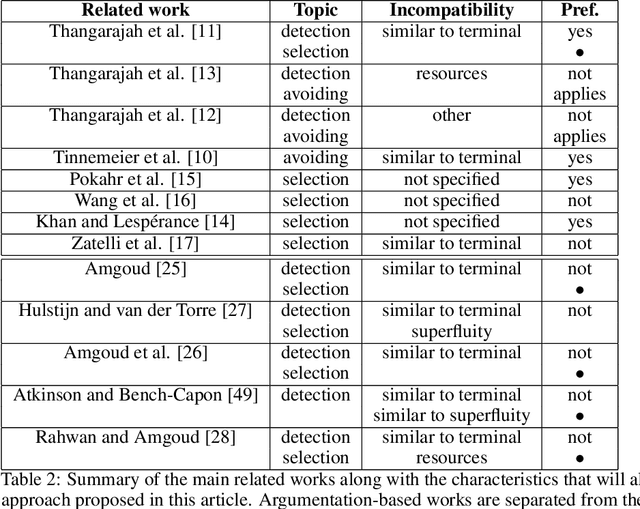Ayslan Possebom
Resolving Resource Incompatibilities in Intelligent Agents
Sep 13, 2020


Abstract:An intelligent agent may in general pursue multiple procedural goals simultaneously, which may lead to arise some conflicts (incompatibilities) among them. In this paper, we focus on the incompatibilities that emerge due to resources limitations. Thus, the contribution of this article is twofold. On one hand, we give an algorithm for identifying resource incompatibilities from a set of pursued goals and, on the other hand, we propose two ways for selecting those goals that will continue to be pursued: (i) the first is based on abstract argumentation theory, and (ii) the second based on two algorithms developed by us. We illustrate our proposal using examples throughout the article.
Argumentation-based Agents that Explain their Decisions
Sep 13, 2020Abstract:Explainable Artificial Intelligence (XAI) systems, including intelligent agents, must be able to explain their internal decisions, behaviours and reasoning that produce their choices to the humans (or other systems) with which they interact. In this paper, we focus on how an extended model of BDI (Beliefs-Desires-Intentions) agents can be able to generate explanations about their reasoning, specifically, about the goals he decides to commit to. Our proposal is based on argumentation theory, we use arguments to represent the reasons that lead an agent to make a decision and use argumentation semantics to determine acceptable arguments (reasons). We propose two types of explanations: the partial one and the complete one. We apply our proposal to a scenario of rescue robots.
An Argumentation-based Approach for Identifying and Dealing with Incompatibilities among Procedural Goals
Sep 11, 2020



Abstract:During the first step of practical reasoning, i.e. deliberation, an intelligent agent generates a set of pursuable goals and then selects which of them he commits to achieve. An intelligent agent may in general generate multiple pursuable goals, which may be incompatible among them. In this paper, we focus on the definition, identification and resolution of these incompatibilities. The suggested approach considers the three forms of incompatibility introduced by Castelfranchi and Paglieri, namely the terminal incompatibility, the instrumental or resources incompatibility and the superfluity. We characterise computationally these forms of incompatibility by means of arguments that represent the plans that allow an agent to achieve his goals. Thus, the incompatibility among goals is defined based on the conflicts among their plans, which are represented by means of attacks in an argumentation framework. We also work on the problem of goals selection; we propose to use abstract argumentation theory to deal with this problem, i.e. by applying argumentation semantics. We use a modified version of the "cleaner world" scenario in order to illustrate the performance of our proposal.
* 31 pages, 9 figures, Accepted in the International Journal of Approximate Reasoning (2019)
 Add to Chrome
Add to Chrome Add to Firefox
Add to Firefox Add to Edge
Add to Edge